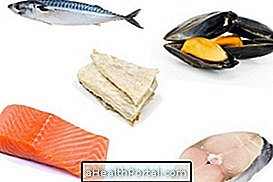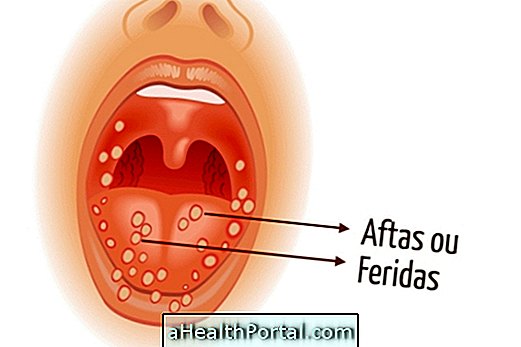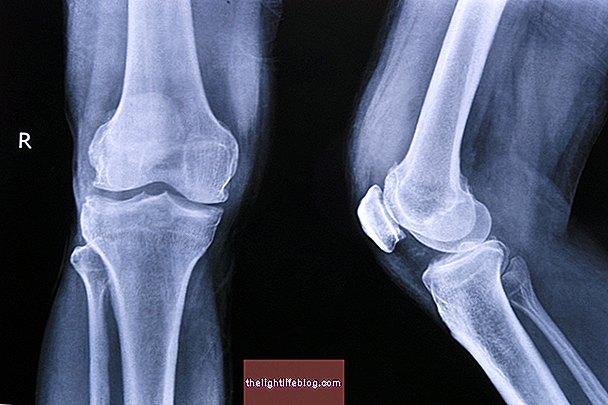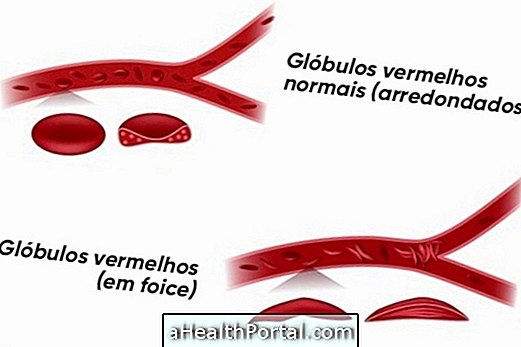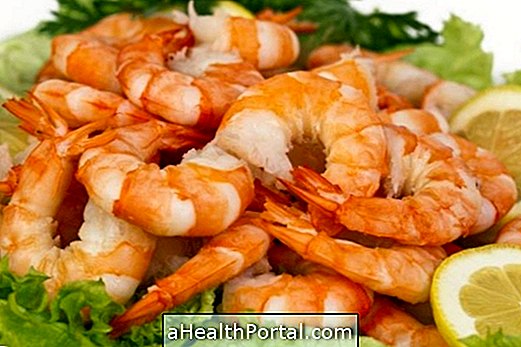The foods that most cause tummy pain are those consumed raw, poorly washed or poorly washed, as they may be full of microorganisms that inflame the intestine, causing symptoms such as vomiting, diarrhea and abdominal pain.
In addition, it is important to remember that children and pregnant women are more likely to have intestinal infections and have more severe symptoms because they have a weaker immune system and therefore should not eat this type of food.
Here are the 10 foods that most cause this type of problem.
1. Raw or poorly aged eggs

Raw or underdone eggs may contain the bacterium Salmonella, which causes severe symptoms of intestinal infection such as fever, belly pain, severe diarrhea, vomiting blood in the stool and headache.
To prevent these problems, one should always consume well-spent eggs and avoid the use of creams and sauces with raw eggs, especially children, as they are more sensitive to strong diarrhea and vomiting. See the symptoms of Salmonellosis here.
2. Raw Salad

Raw salads are more likely to be contaminated if vegetables are not thoroughly washed and sanitized. Consuming raw fruits and vegetables, especially outside the home, can be a risk especially for children and pregnant women, who are more likely to be affected by foodborne diseases such as toxoplasmosis and cysticercosis.
To avoid this problem, you should always thoroughly wash all the vegetables, soaking them for 30 minutes in chlorinated water in the ratio of 1 liter of water to every 1 tablespoon of bleach. After removing the food from the bleach, it must be washed with running water to remove excess chlorine. See other ways in How to Wash Fruits and Vegetables Well.
3. Canned

Canned foods may be contaminated with the bacterium Clostridium botulinum, which is usually present in foods such as palmito, sausage and pickled pickles. This bacteria causes botulism, a serious illness that can lead to loss of body movement. See more in: Botulism.
To prevent this disease, you should avoid eating foods in canned foods that are stuck or crushed, or when the liquid in the preserve is cloudy and dark.
4. Poor meats

Raw or underdone meats may be contaminated with a microorganism such as protozoan Toxoplasma gondii, which causes toxoplasmosis, or with tapeworm larvae, which causes teniasis.
In this way, one should avoid eating undercooked meats, especially when the origin and quality of the meat is not certain, since only the proper cooking can kill all the microorganisms present in the food.
5. Sushi and seafood

Consumption of raw or poorly stored fish and seafood, as may happen with sushis, oysters and old fish, can cause intestinal infections that cause inflammation in the stomach and intestine, causing nausea, vomiting and diarrhea.
In order to prevent contamination, avoid eating sushi in unfamiliar and poorly-hygienic places, oysters sold on the beach without being chilled, or old fish, with a strong odor and soft or gelatinous appearance, indicating that the meat is no longer suitable for consumption.
6. Unpasteurized milk

Unpasteurized milk, which is raw milk sold, is rich in several bacteria that can cause intestinal infections, causing diseases like salmonellosis and listeriosis, or symptoms of pain, vomiting and diarrhea caused by fecal coliforms.
Therefore, pasteurized milk should always be consumed, which is sold refrigerated in supermarkets, or UHT milk, which is box milk, as these products undergo high temperature treatment to eliminate contaminating bacteria.
7. Soft cheeses

Soft cheeses such as brie, rennet and camembert are rich in water, which facilitates the proliferation of bacteria such as listeria, which can cause headaches, tremors, seizures and meningitis, leading to death in the most severe cases.
To avoid this problem, one should prefer hard cheeses or industrially manufactured cheeses with safety in the manufacture, in addition to avoiding the consumption of cheeses out of refrigeration that normally are sold in fairs and beaches.
8. Mayonnaise and sauces

Mayonnaise and homemade sauces, made with raw eggs or kept out of the refrigerator for a long time, are rich in bacteria that can cause intestinal infection, such as fecal coliforms and Salmonella.
Thus avoiding the consumption of mayonnaise and homemade sauces, especially in restaurants and snack bars that leave these sauces out of the refrigerator, which increases the proliferation of microorganisms.
9. Reheated food

Foods that are reused, made at home or from restaurants, are major causes of foodborne infections due to their poor storage, which favors the proliferation of bacteria.
To avoid this problem, store food leftovers in clean, capped containers that should be placed in the refrigerator as soon as they cool down. In addition, the food may only be reheated once and discarded if not consumed after reheating.
10. Water

Water is still a major cause of transmission of diseases such as hepatitis, leptospirosis, schistosomiasis and amebiasis, which can cause simple symptoms like vomiting and diarrhea to severe symptoms such as liver problems.
So you should always use mineral or boiled water for drinking and cooking food, to ensure that water will not be a source of illness for the family, and to wash hands well too. See the video below for the steps you should take to properly wash your hands:





